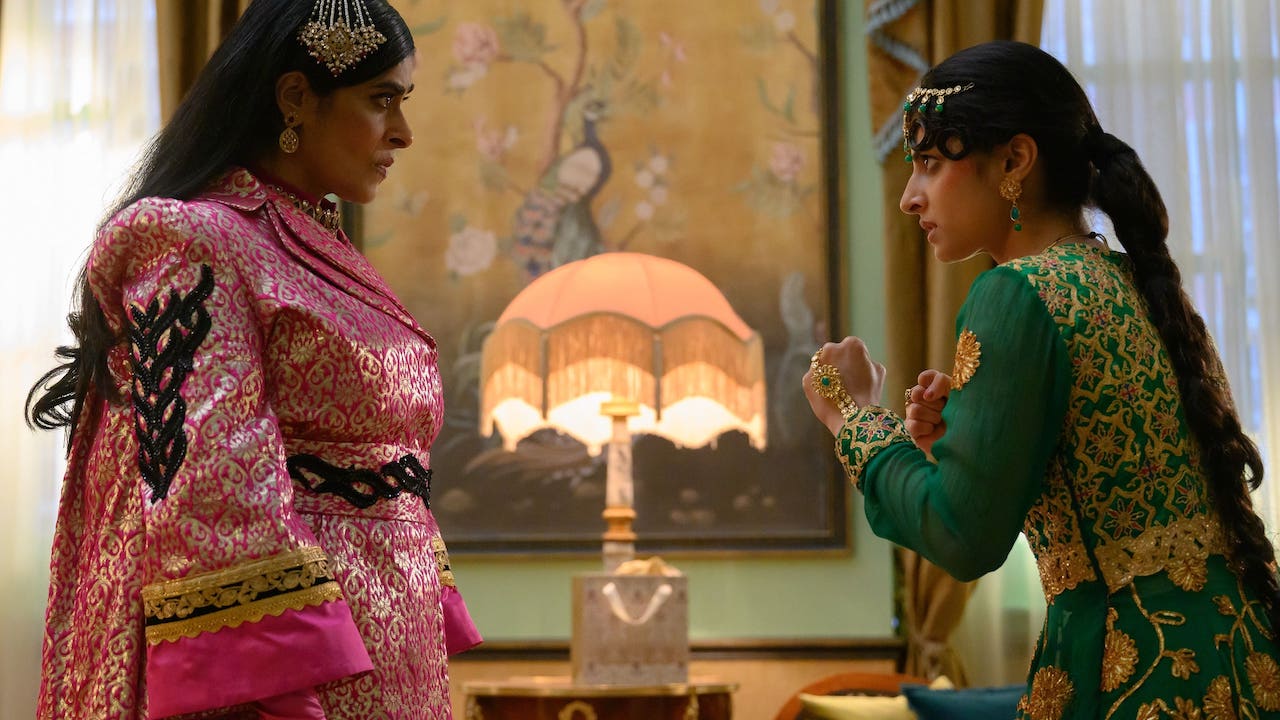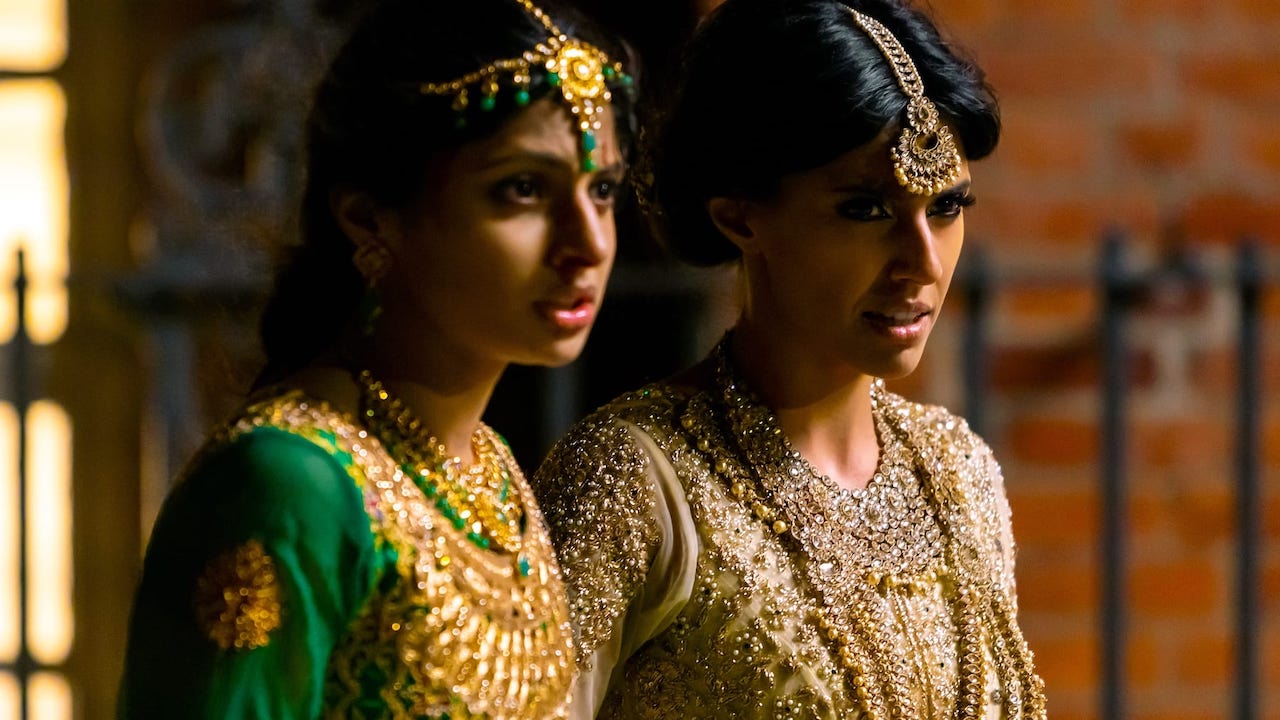Martial arts action + culture-smashing comedy = Polite Society, a dang good time

Now available to rent or buy, Polite Society follows in the vein of Edgar Wright’s zippy genre-mashing comedies. Eliza Janssen says a core story of sisters rebelling against cultural expectations makes it worth a deeper look.
Polite Society
Ria Khan (Priya Kansara) has an overactive imagination, a family that wishes she’d settle down and be a proper British-Pakistani lady, and a drive to perfect her reverse-spin kick. She’s desperate to become a stuntwoman, and almost as desperate to see art school dropout sister Lena (Rita Aryu) succeed, too. The only thing standing in their way? Lena’s “fit” doctor fiance and his creepy mum Raheela (Nimra Bucha), whom Ria’s certain are plotting to extinguish her sis’s creative fire. Maybe her life, too.
Like a hyperactive battle between Bend It Like Beckham and Scott Pilgrim Vs. The World, Polite Society karate-chops through genre tropes to deliver something exhaustingly fun, with a heartfelt story of sisterhood as its foundation. When Ria and her school chums debate using corny ol’ chloroform to knock out their opponents, their justification could speak for the whole film: “There’s a reason tropes are tropes. It’s because they work!”
Lena is the only person who seems to believe in Ria’s outlandish dreams, of ascending to stuntwoman greatness like her hero Eunice Huthart. She’ll hold the camera when Ria performs goofy stunt fails for her YouTube channel, and defend her little sis against their well-meaning parents’ disapproval. That’s why Kansara’s lead character becomes such a tinfoil-hat-wearing, heist-plotting tornado of suspicion once Lena seems keen to settle down with a new match. If her only supporter is ready to give up on her dreams of independence and creative selfhood, what does that mean for try-hard teen Ria?
With its hyper-kinetic editing and cartoonish characterisations, Nida Manzoor’s directorial debut feels mostly indebted to Edgar Wright’s self-conscious style. It’s an easy formula with which to sell bright new British comedy-hybrids to international audiences (see also: Attack the Block, Get Duked). When the Khan sisters fight, they’re soundtracked by pumping South-Asian beats; they kick each other through doors like it’s no effort. This movie doesn’t take place in our world, nor is it bound by our physics.
It’s a far-cry from Manzoor’s grounded work in the similarly rebellious sitcom We Are Lady Parts. That through-the-roof energy might alienate viewers seeking a straight-forward tale of second-generation migrant women facing off against an oppressive, patriarchal culture—one that’d rather cast them as brides, mothers, respectable med students.
Bend It Like Beckham is a classic of teen cinema not in spite of, but because of its perky understanding of adolescent yearning—crushes that might not last, career aspirations, the desire to grow beyond your family’s crushing expectations. Although that 2000s film and this newer mash-up might have been sold to viewers in a similar, coming-of-age vein, the stakes for Ria are life-and-death…wacky and unbelievable though they may be.

Then again, the performances manage to convince us of each judo-throwing, back-flipping character’s deeper motivations and insecurities. Asked what she does with her life by dodgy new beau Salim (Akshay Khanna), Lena admits, “I disappoint my parents. That’s what I do.” Even cackling villain Raheela gets some human moments in between her Oedipal manipulations. Just our heroes, she’s been burdened by the responsibilities of marriage and motherhood, and she’s not afraid to employ (literally) hair-raising torture tactics to get the second chance she deserves.
Polite Society is the kind of movie that can get away with having a bad guy tell our hero “we’re not so different, you and I.” It eagerly indulges in its differences, too—with every sweet sisterly moment, bit of Brit slang, and thwarted spin-kick.


















